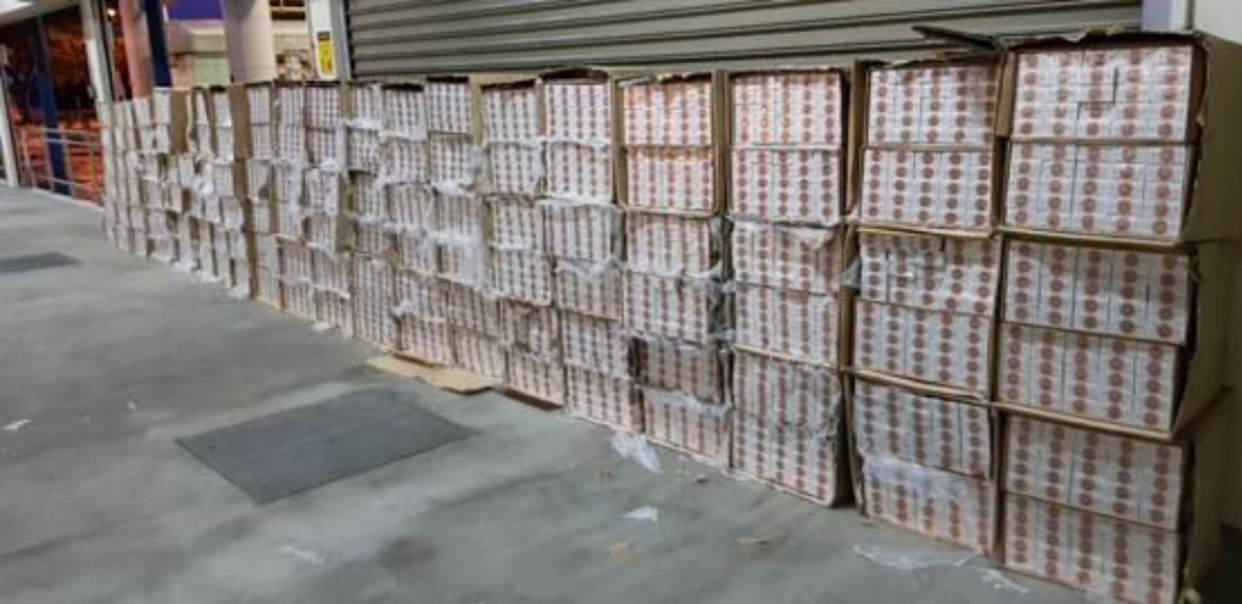Record number of contraband cases seen at checkpoints in 2018: ICA

The number of contraband cases detected at Singapore checkpoints reached an all-time high in 2018, said the Immigration and Checkpoints Authority (ICA) on Wednesday (27 February).
From 90,327 cases of contraband items detected in 2017, the number rose to 107,771 last year, the highest annual figure ever recorded, said the authority in its annual statistics report.
This works out to an average of about 300 cases per day seen in 2018.
Common conveyances of contraband items
Lorries and heavy commercial vehicles such as bowsers and trailers continued to be one of the most common methods for conveying contraband items.
The sheer size of such vehicles allows large quantities of contraband items, or even security-sensitive materials such as toxic industrial chemicals and explosives, to be concealed within the consignments or the modified compartments of these vehicles, said ICA.
For instance, 6,000 cartons of duty-unpaid cigarettes were found concealed among a consignment of printer parts and roller scanners in a Malaysia-registered prime mover at Tuas Checkpoint on 18 May last year.
To address some of these challenges, the ICA has used radiographic scanners to scan cargo vehicles, and implemented bus scanners at Tuas Checkpoint last year. Such devices are able to screen large buses and cargo vehicles, allowing the authority to identify secret compartments and contraband items more effectively and quickly.

Fewer arrests of immigration offenders
In terms of immigration offenders – meaning illegal immigrants and overstayers – the number of arrests in 2018 dropped by about 8.9 per cent to 1,071 cases, down from 1,176 in 2017.
The ICA conducted an average of more than 100 raids per month in 2017, and sustained the level of enforcement efforts in 2018.
It gave the example of a multi-agency enforcement blitz in which four operations targeting suspected
immigration offenders were conducted respectively between March and November last year. The offenders had been observed loitering and peddling contraband cigarettes around the Yew Tee industrial estate.
The operations resulted in the arrest of 21 male Indonesians and the seizure of more than 102 cartons and 4,561 packets of duty-unpaid cigarettes. All 21 men received sentences, ranging from one to three months’ imprisonment and between three and six strokes of the cane, and will be repatriated after serving their sentences.

To tackle the immigration offenders situation, the ICA has adopted a multi-pronged approach of tough laws, stringent border checks and inland enforcement. A biometric identification system that scans all travellers’ fingerprints has been implemented progressively across all checkpoints since 2016.
Offenders who attempt to re-enter Singapore with someone else’s identity or a false identity can therefore be detected.
More caught for employing, harbouring immigration offenders
Meanwhile, the number of people caught for employing and harbouring immigration offenders rose last year to 340, up from the 300 nabbed in 2017.
The majority of those arrested were Singaporeans or permanent residents aged above 50. They had mostly failed to conduct the necessary checks on the foreigners’ immigration statuses, in their bid to earn rental income.
Most of the immigration offenders were engaged in maintenance and construction work.
The ICA has advised three mandatory checks when renting out premises:
Checking the tenant’s original immigration/work pass;
Cross check the particulars on the pass against the particulars on his/her original passport;
Verify the validity of the pass by checking with the issuing authority (the Ministry of Manpower for work passes, and the ICA for other immigration passes such as Student’s Pass and Long Term Visit Pass).
According to the ICA, 32 people were convicted last year for offences relating to marriages of convenience aimed at obtaining immigration facilities in Singapore. This was a decrease of about 40 per cent compared with 2017, when 53 persons were convicted.
The ICA said in the report that it will continue engaging community partners, such as home owners and estate agents, to tackle the harbouring and employment of immigration offenders.
More Singapore stories:
British model who molested woman sentenced to 15 months’ probation
Lorry driver in viral video of altercation with cyclist in Eunos arrested
Man jailed 5 years for cheating 6 women he befriended online of nearly $440,000



